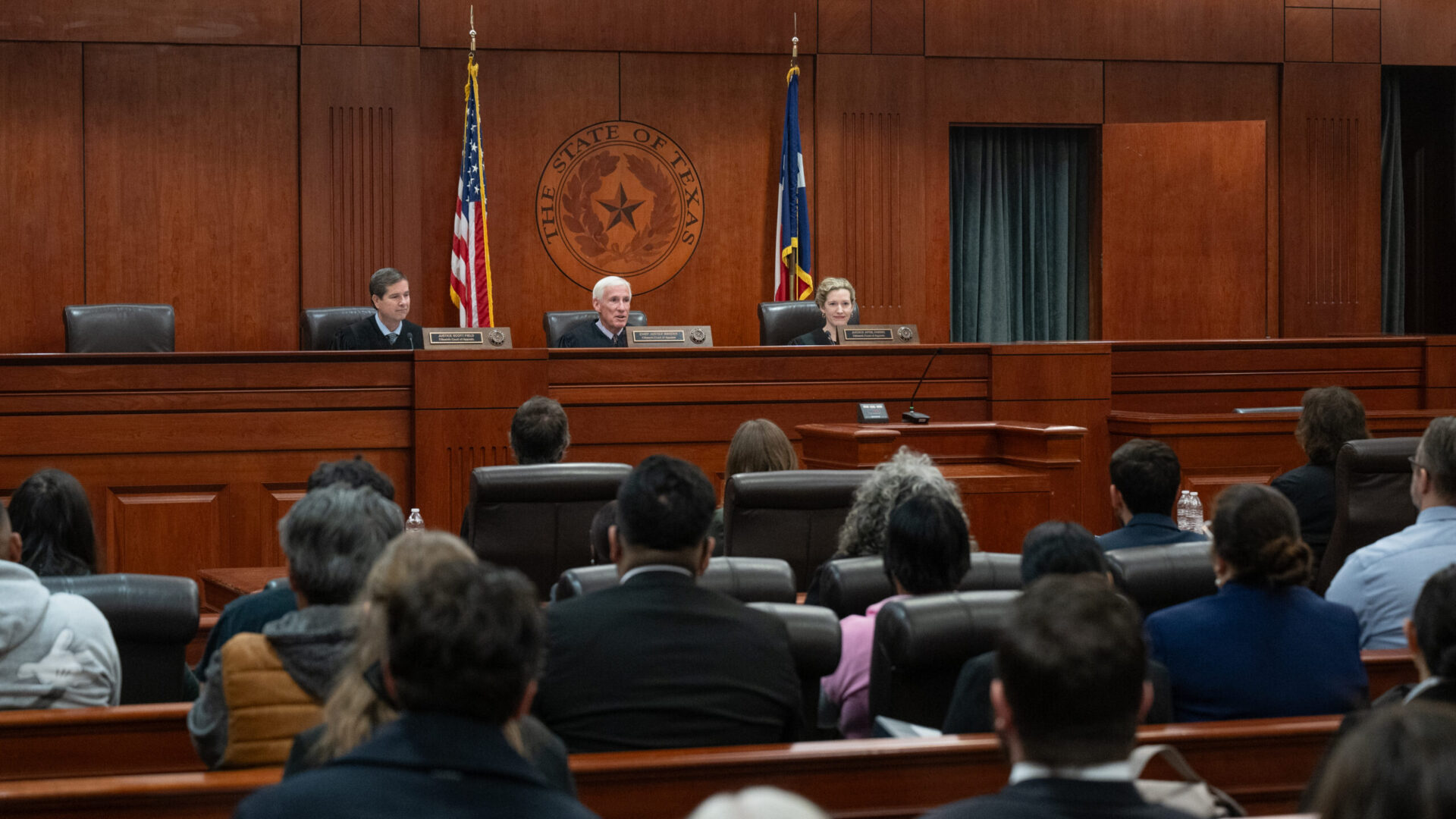
Texas’ new 15th Court of Appeals has a home at Texas Law: the Eidman Courtroom.
The Court, which was created by the Texas Legislature in 2023, has a unique and particularly important charge, including “exclusive intermediate appellate jurisdiction over matters arising out of or related to a civil appeals brought by or against the state or a board, commission, department, office, or other agency in the executive branch of the state government.” In addition to the mandate above, the Court also has exclusive jurisdiction over appeals from the Texas Business Courts, involving cases dealing with business disputes valued at more than $10 million. The Court convened for oral argument at Texas Law on Jan. 15, hearing two cases and taking time afterwards to give advice to the Texas Law students in attendance.
“We are tremendously honored to host the Court,” says Dean Bobby Chesney, who worked closely with the state judiciary, the judges, and the court’s clerk to ensure the school could create this opportunity. “It is an incredible learning opportunity for our students, and as the flagship law school of Texas we have a special commitment to supporting the Texas judiciary.”
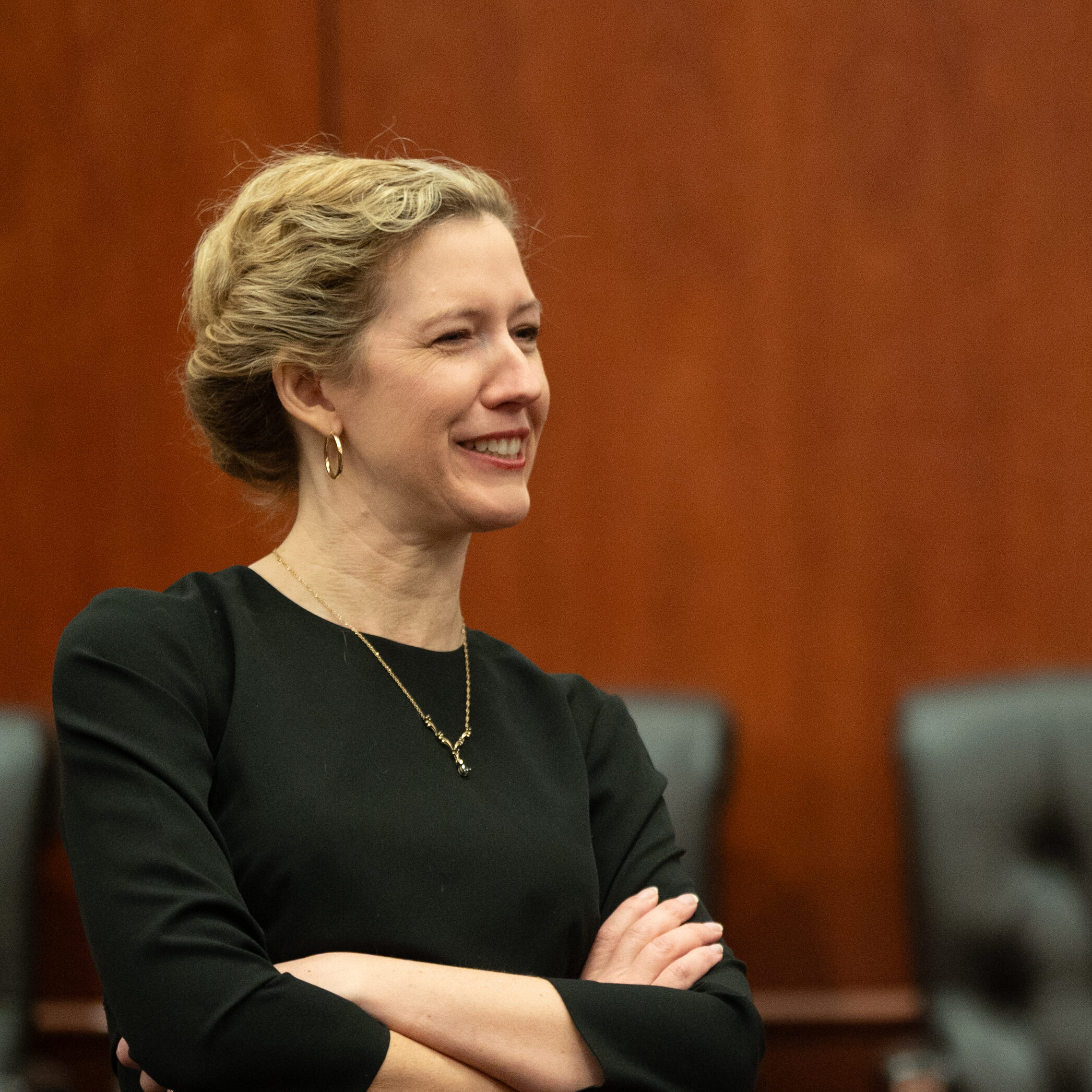
What state intermediate courts do is very important. The intermediate courts are the final line of review of about 90% of cases that come through Texas, so I’m glad people are getting to know what we’re about.
Justice April Farris
The Court will hold hearings at Texas Law monthly during the spring semester, with the next two sittings scheduled for Feb. 12, in the morning, and March 25, in the afternoon. Their docket is available to the public on the Court’s website.
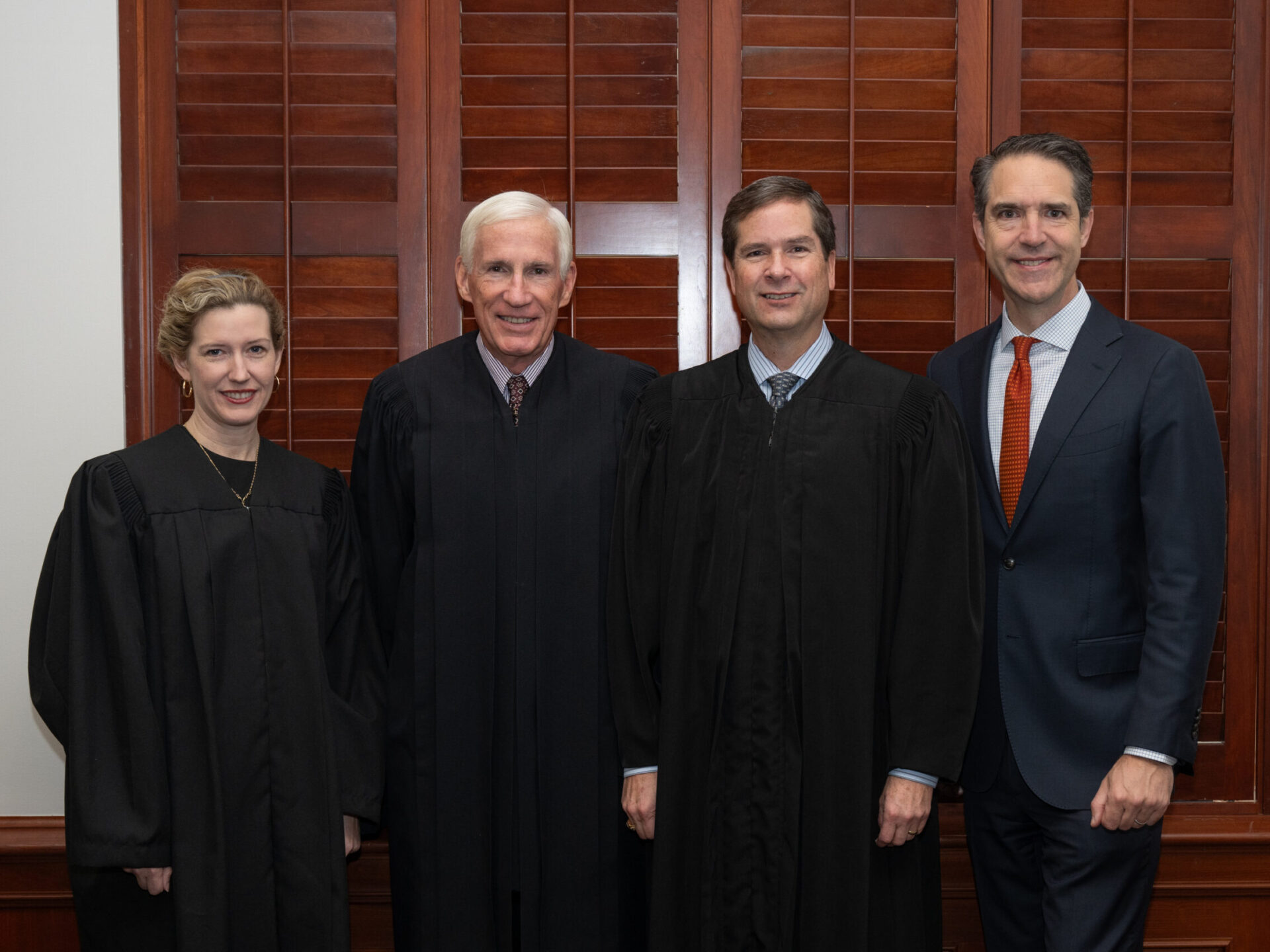
For its first three years, former Texas Supreme Court Justice Scott Brister is serving as the court’s chief justice alongside Texas Law alum Justice Scott Field ’95 and Justice April Farris, who also is teaching a Texas Law course this spring on the origins of the Constitution.
The justices described their home at Texas Law as a special opportunity. “You usually have people in your courtroom who are just interested in that case,” said Field, following the January arguments. But having a courtroom full of students and other members of the Texas Law community lends a different atmosphere to the proceedings. “They’re excited about the law and they’re interested in learning, so it gives an energy to the courtroom. In some ways, there’s a collegial feel,” he said.
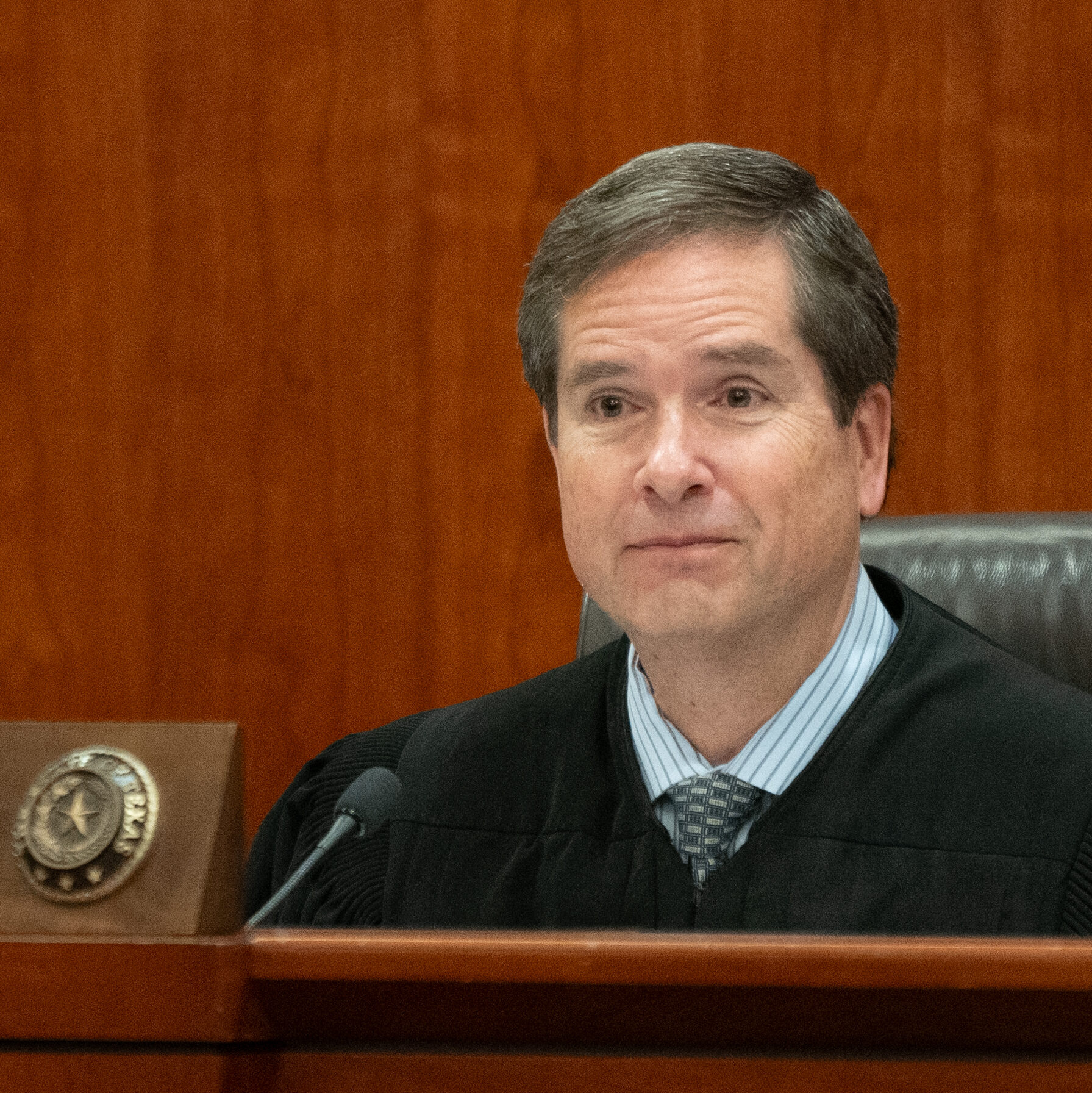
It’s a bit of a surreal experience. I’ve done moot court competitions here, but I had that moment today of realizing, ‘Wow, 30 years ago, I was one of those students I see sitting in the audience and listening.’ At that point in my life, I never would have thought I would be up there actually hearing a case.
Justice Scott Field ’95
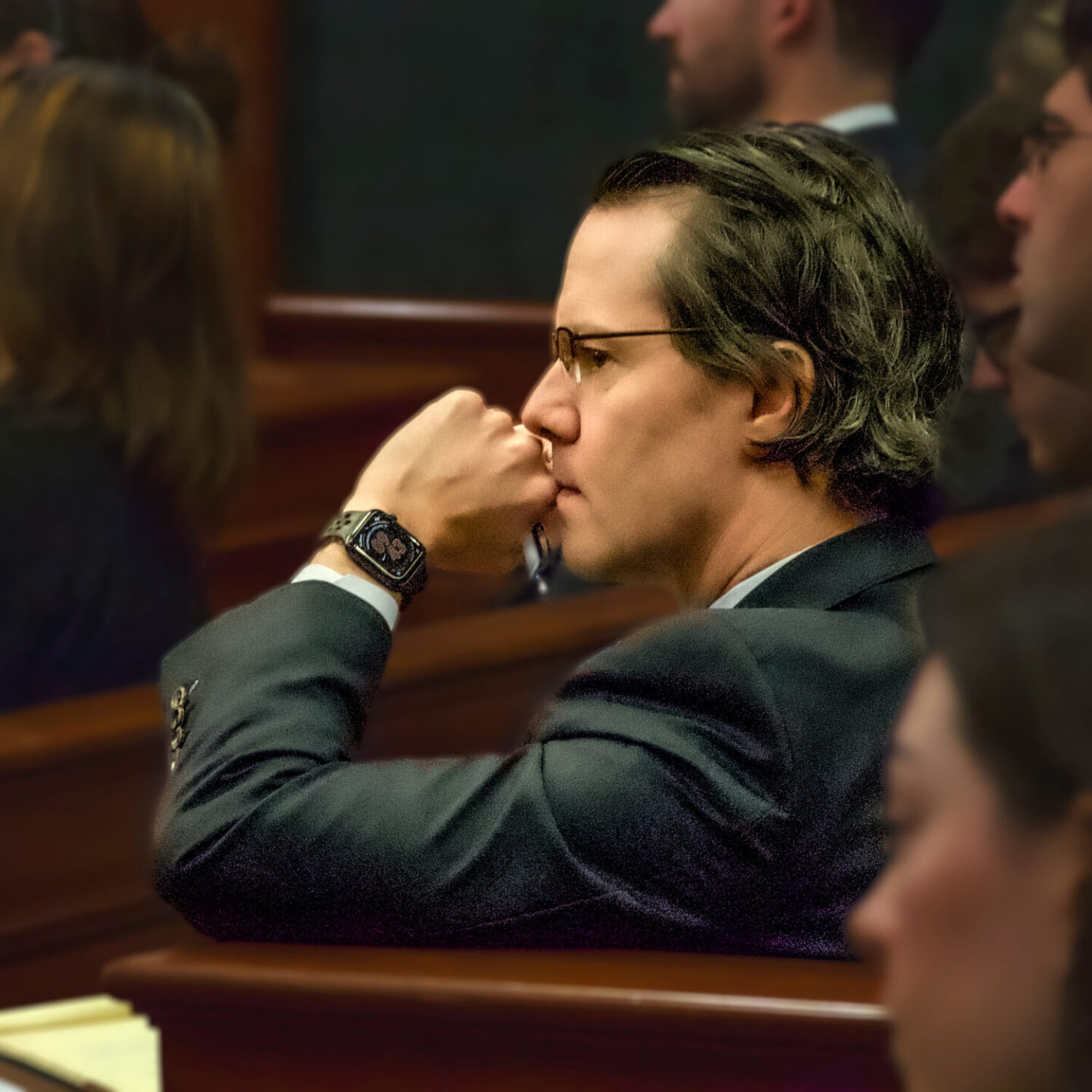
After the arguments concluded, the judges changed out of their robes and spent time answering questions from students and other court visitors.
From an educator’s standpoint, “I was happy to know that we were able to help out the 15th Court and give them a great place to hold oral argument,” says Professor Mike Golden ’01, director of the school’s Advocacy Program. “We’re so fortunate at Texas Law to have wonderful full-size courtroom spaces, and it’s always fun to get to share those amazing spaces with the public. Beyond that, I was excited to give our students a chance to see high-level appellate advocates argue real cases without having to leave the law school.”
Students even had the chance to see one of their professors argue a case before the court.
In a serendipitous turn of events, Environmental Clinic Professor Erin Gaines ’13 represents the appellees in the first case heard by the Court in its January seating: Texas Commission on Environmental Quality v. San Antonio Bay Estuarine Waterkeeper & Texas Campaign for The Environment. Last December, Gaines discovered the extraordinary coincidence that she would be arguing not just before a new court, but in her place of work, in front of former teachers, current colleagues, and her students.
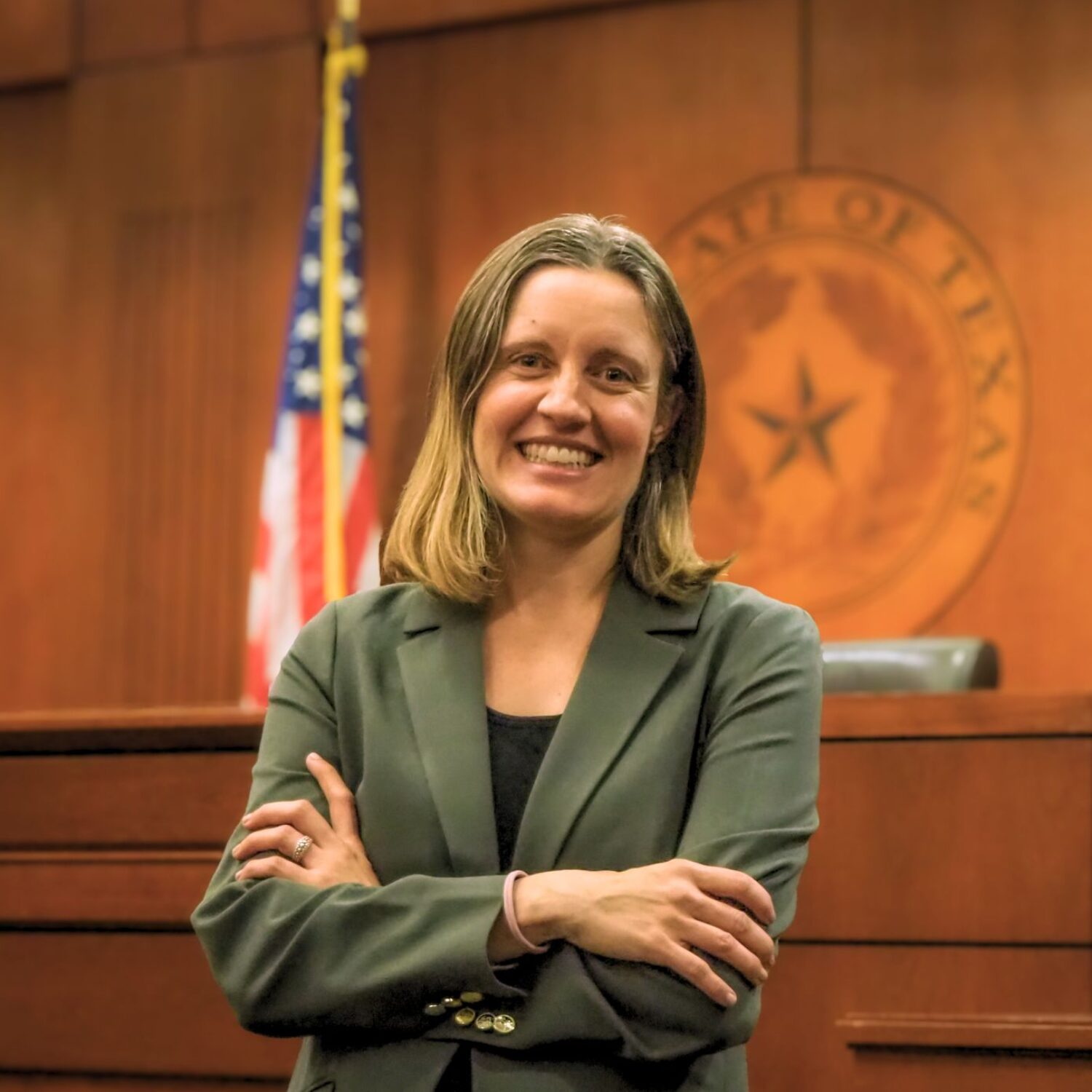
“I was excited to have the argument at the law school since it is a familiar place for me,” says Gaines, “but also a little nervous that so many members of the Texas Law community would be able to attend!”
While the Court has not yet issued its rulings in the two January cases, the benefit to Texas Law students is already clear. “The best way to learn to be a great courtroom advocate is always to practice, but getting to watch excellent appellate lawyers at work in front of a well-prepared panel of appellate judges is an excellent opportunity that most students don’t get a chance to take advantage of while they are here,” Golden says. Hardworking students with busy schedules may not have the time for courthouse visits. “So many students miss out on what is otherwise a fantastic way to learn courtroom advocacy firsthand. Giving students the convenient option of walking over to the Eidman Courtroom to have this experience on a regular basis just makes it that much easier for them, and we obviously saw that from the extremely crowded gallery during the oral arguments.”
I’ve been on two different courts and crowds larger than this were very unusual. The crowd helps us to focus on different issues, because it’s not just a bunch of experts. Having the students here helps put things in perspective.
Chief Justice Scott Brister
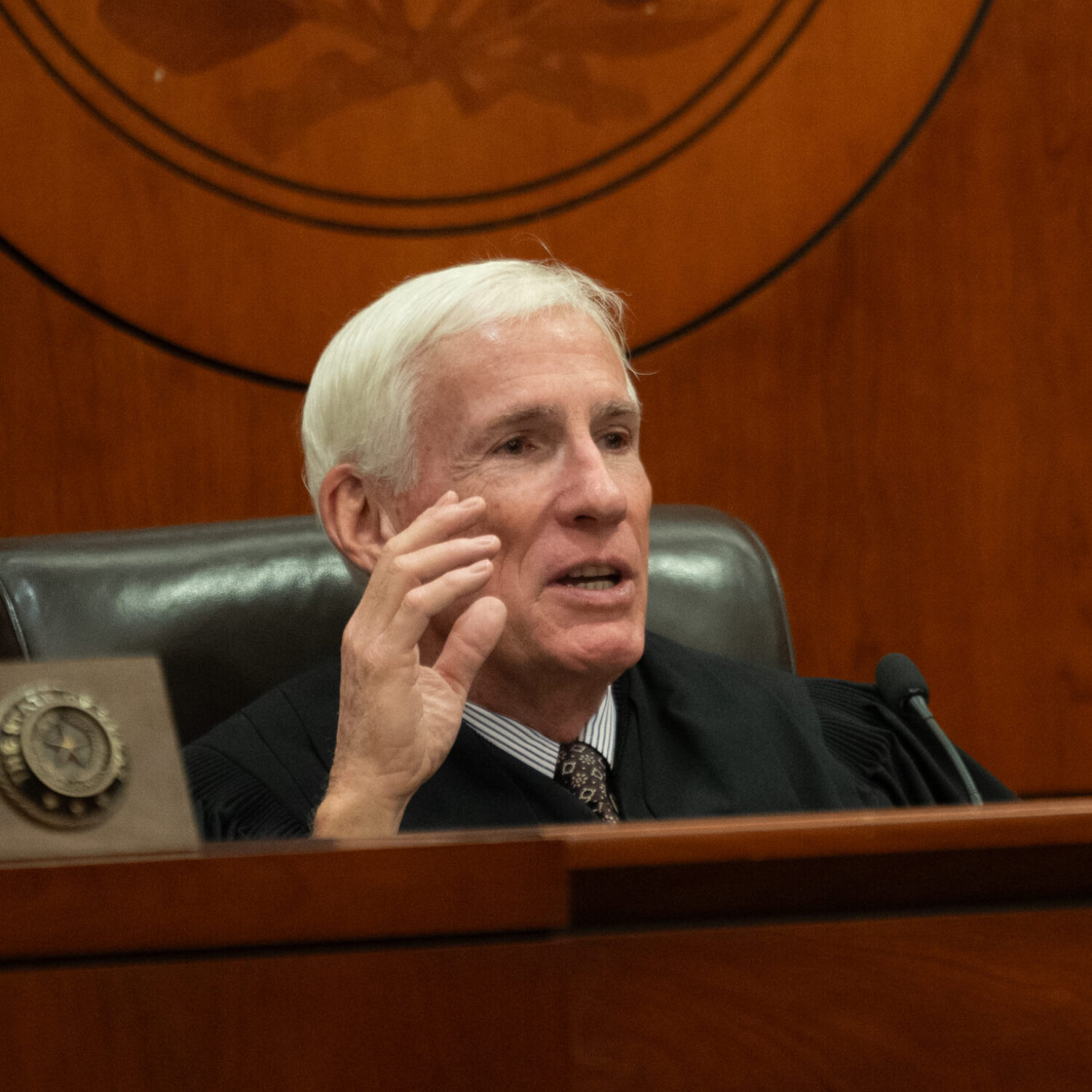
2L Jack Rabinowitz, who learned about the court’s visit in Golden’s class, was among the students in attendance for the January arguments. “Anytime I’ve been able to go to court or see proceedings, it’s one of the more effective ways to learn,” he says, noting it offers the chance for students’ to determine their career direction. “If you watch an appellate argument, is that something you would want to do? Does it interest you? Same thing with trial court proceedings, a deposition, or any part of the legal process, which we’re fairly insulated from,” says Rabinowitz, co-president of the Plaintiffs’ Advocacy & Litigation Society, who plans to work for a firm doing civil trial work after graduation. “I really would encourage folks to go check these arguments out, especially when they’re here at the school. It’s a great way to figure out what you what you’re interested in.”
Mark Your Calendar
Texas Law students and faculty are encouraged to attend 15th Court of Appeals arguments in the school’s Eidman Courtroom. The next arguments take place on Feb. 12 from 9:00 a.m. to noon and on March 25 from 1 to 4 p.m.
